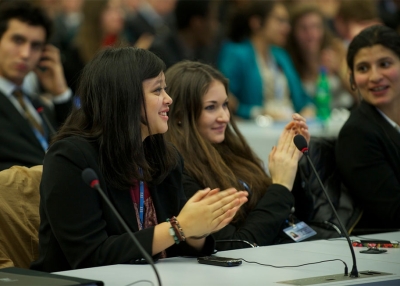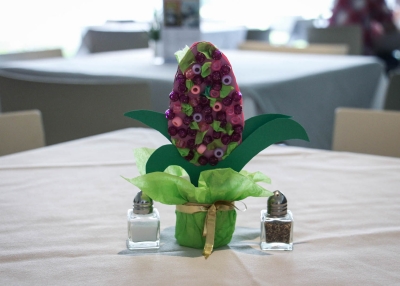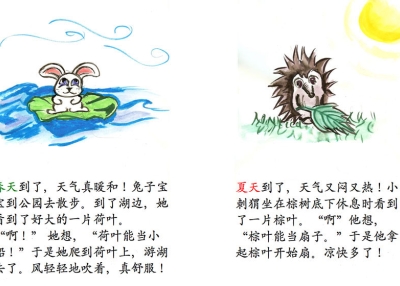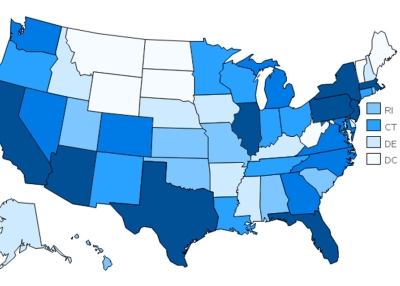How to Build a School Exchange Program
The Walter Payton Preparatory High School Model
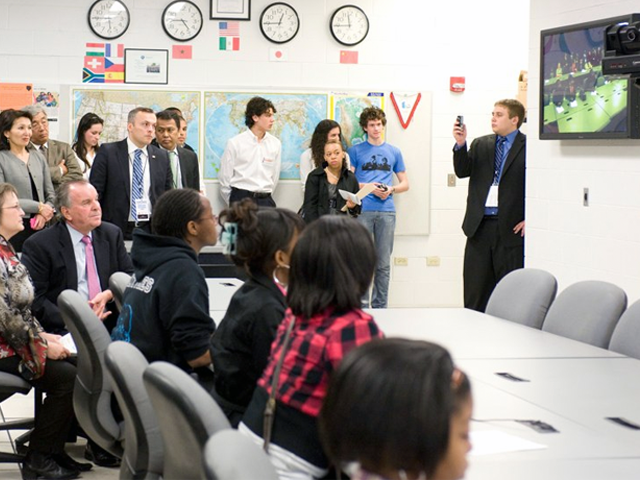
Traveling internationally is not foreign to Walter Payton College Preparatory Academy students. In the past decade, the school faculty worked hard to make sure that in order to live up to the school motto—“We Nurture Leaders”— it includes a global vision of leadership. We've asked former school principal Ellen Estrada to share with our readers how her school community did it. -The Editors
by Ellen Estrada
After September 11, 2001, the leadership of Walter Payton Preparatory High School chose to reach out to the world through the use of modern technology and student exchanges. Knowing the implications of an interconnected world for their students, the school decided that the world would become Payton’s classroom.
Payton’s motto, “We Nurture Leaders,” recognizes the critical need for students to understand and connect to the world, and to develop cultural competencies and multiple perspectives on issues and events. In the video-conferencing lab and with email and video projects, students linked to young people around the world to share knowledge, ideas and to form friendships and build relationships.
Traveling internationally became integral to the experience of Payton students and teachers. During the past several years, students have visited sister schools and educational institutions in 21 cities on five continents. This article examines how the exchange programs are set-up and how we find funding for them.
Planning
When planning our global connections, Walter Payton College Prep sought the assistance of the Chicago Sister Cities International. CCSI is an organization developed by the U.S. Department of State to encourage American cities to partner with cities internationally in order to build citizen-to-citizen diplomacy. Each city chosen to partner with Chicago establishes an advisory committee and develops programs around shared interests and concerns.
The committee meets with Payton school leaders to help identify the type of school that makes the most sense to have as a sister school abroad: it is usually a public school with a diverse student body like that of Payton. The first global contact is then made between administrators of the two schools. This relationship affirms the plan to develop an exchange program with teachers and students and the goals and timeline for the exchange. Often a Sister School contract is signed between the school leaders and committee heads.
Who Decides Student Outcomes?
The most important lever in this process is the teacher-to-teacher relationship. The teachers will correspond and communicate the overall school and specific class goals for the exchange. Discussions of projects and communications are important elements at this point. Will there be a home stay with students and families? How are the families chosen? How soon can students begin communicating with their global partner? Is there a service project the students can do collaboratively? How will the students communicate prior to, during, and after the exchange? Will they create a website or blog or share videos online? If it is not possible to organize a home stay, plan for students to have lunch and /or dinner in family homes as much as possible.
Once the students are connected through email and/or social media, their participation facilitates in the making of these decisions. One French class at Payton wrote a play in French to share with the sister school Ben M Sikh in Casablanca Morocco. The Moroccan students wrote a play in English and the students staged the productions for each other through video conferencing. No video conference equipment? Get creative: The Moroccan students were able to access technology at the American Consulate in Casablanca.
Seminar classes are organized for all international trips. Payton’s schedule allows for seminars to meet nearly every week, providing time and resources for students to prepare for the trip by delving into the target country’s history, geography, current events, and global concerns. During the seminars, plans for fundraising develop. Students connect with their assigned new friend at the sister school. Students develop deep commitment intellectually and emotionally as they plan the exchange. Likewise, the time is used for planning activities and organizing home stays when the sister school visits Chicago.
Who Travels?
Students are chosen through an application process. The teacher determines the unique criteria for each exchange. For example, if the exchange is based in a world language classroom, the students who travel may require an advanced fluency in the target language when staying with host families. If the exchange relates to a team, such as the Payton math team’s exchange with a math/science Institute in Budapest, Hungary, the criteria may be based on an essay and/or grades. The Global Connections Committee, composed of teachers who have experience with exchanges or who are planning trips, and the administration approve all applications.
How to Pay for Exchanges
At Payton, teachers and students fundraise year round. As soon as the exchange is announced and students are selected, plans to offset the price of travel begins. Bundled packages from travel agencies are rarely used at Payton, as they add expenses that can be eliminated through careful planning. A home stay eliminates the need for hotel bills; spending time shadowing students at schools and visiting cultural centers with local teachers often decreases admission fees.
Payton’s values of diversity and equity guide us as we choose students and assist them in paying for the trips. Overall, 34 perecent of our students are considered low income; our goal is that every exchange represents at least that same percentage. In 2008, Payton students, teachers and parents organized nine international trips. Thirty percent of the junior and senior classes were involved. Together, the school community raised nearly $300,000 for the trips. Reviewing the lists of donations revealed hundreds of friends offering ten dollars or twenty dollars to help offset costs. We always asked parents to be “honest” and “generous” as they considered their ability to cover the price of travel for their student. Often a parent would offer to pay for an additional student unable to pay on his/her own. This level of commitment is a testimony to our culture of community at the school. In that same year, our Friends of Payton organization created a Global Connections committee to mobilize Payton families to open their homes to our visiting sister schools, plan receptions and events while in Chicago, and offer scholarships to students in need for travel.
Ellen Estrada is the leadership coach for Chicago Public Schools. Prior to that, she was the principal of Walter Payton Preparatory High School. She can be reached at [email protected].


